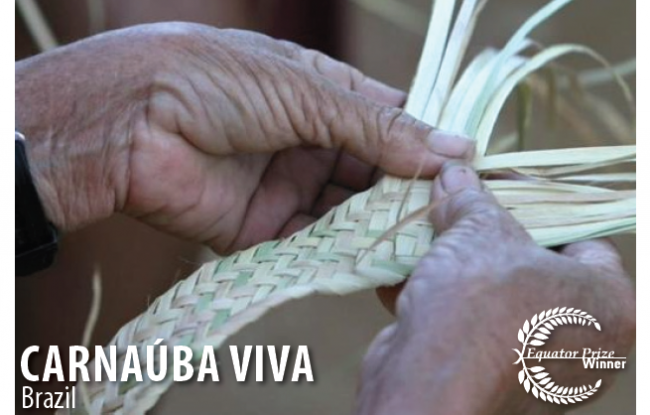Cambodian peasant's contribution to rural development: a perspective from Kampong Thom Province
The paper aims to identify the rationality of peasant communities and their contribution to rural development in Kampong Thom province. To do so; an interdisciplinary analytical framework addresses the dynamics of land use and land tenure; the strategies of labor force allocation as well as the determinants of land and labor agricultural productivities amongst peasant communities. It rests on details field surveys in two communes located in very distinct agro-ecological settings of Kampong Thom province.
Community Forestry in Cease-Fire Zones in Kachin State, Northern Burma: Formalizing Collective Property in Contested Ethnic Areas
Community forests (CFs) in northern Burma have been gaining momentum since the mid-2000s, spearheaded by national NGOs, mostly in response to protect village land from encroaching agribusiness concessions. While the production of these new CF landscapes represents the material resistance against state-sponsored rubber, in effect it produces contested state authority by formalizing control of former customary swidden hills under the Forestry Department.
Forced Eviction and Resettlement in Cambodia: Case Studies from Phnom Penh
The rise of urbanization and development in Cambodia in recent years has led to a dramatic increase in land prices, with particularly high values for land in the capital city of Phnom Penh. Some government officials have benefited from the high price of land by unlawfully granting land title to private developers in exchange for compensation. Once these officials have granted land title to developers, they forcibly evict from the property existing residents, who mostly come from poor and marginalized communities. There is rampant corruption at every stage of the "development" process.
Formalizing Inequality: Land Titling in Cambodia
The Land Law of 2001 was a landmark statute intended to strengthen and protect the rights of ordinary Cambodian landholders. A land titling programme (LMAP) was initiated soon afterwards, with extensive World Bank and donor support. The land occupied by the community of Boeung Kak, in the heart of the capital was excluded from this process, despite evidence of prior residence going back decades. Instead it was classifi ed as having “unknown status” by the LMAP, as “state land” by default, and as a “development zone” by authorities.
Report of the Special Rapporteur on the situation of human rights in Cambodia: A human rights analysis of economic and other land concessions in Cambodia
Building upon the technical paper containing a review of the existing literature on the potential costs and benefits of adaptation options (FCCC/TP/2009/2), this report synthesizes information contained in submissions from Parties and relevant organizations, and other relevant sources, on efforts undertaken to assess the costs and benefits of adaptation options. A summary of lessons learned and good practices is provided.
Tyrants, Tycoons and Tigers
ABSTRACTED FROM SUMMARY: A bitter land struggle is unfolding in northern Burma’s remote Hugawng Valley. Farmers that have been living for generations in the valley are defying one of the country’s most powerful tycoons as his company establishes massive mono-crop plantations in what happens to be the world’s largest tiger reserve. The Hukawng Valley Tiger Reserve in Kachin State was declared by the Myanmar Government in 2001 with the support of the US-based Wildlife Conservation Society.
Equator Initiative Case Studies. Indonesia. Komunitas Nelayan Tomia (KOMUNTO, Fishing Community of Tomia) (English)
Local and indigenous communities across the world are advancing innovative sustainable development solutions that work for people and for nature. Few publications or case studies tell the full story of how such initiatives evolve, the breadth of their impacts, or how they change over time. Fewer still have undertaken to tell these stories with community practitioners themselves guiding the narrative. The Equator Initiative aims to fill that gap.
Equator Initiative Case Studies. India. Samudram Women’s Federation (English)
Local and indigenous communities across the world are advancing innovative sustainable development solutions that work for people and for nature. Few publications or case studies tell the full story of how such initiatives evolve, the breadth of their impacts, or how they change over time. Fewer still have undertaken to tell these stories with community practitioners themselves guiding the narrative. The Equator Initiative aims to fill that gap.
Equator Initiative Case Studies. Brazil. Carnaúba Viva (Portuguese)
Local and indigenous communities across the world are advancing innovative sustainable development solutions that work for people and for nature. Few publications or case studies tell the full story of how such initiatives evolve, the breadth of their impacts, or how they change over time. Fewer still have undertaken to tell these stories with community practitioners themselves guiding the narrative. The Equator Initiative aims to fill that gap.
Equator Initiative Case Studies. India. Samudram Women’s Federation (Hindi)
Local and indigenous communities across the world are advancing innovative sustainable development solutions that work for people and for nature. Few publications or case studies tell the full story of how such initiatives evolve, the breadth of their impacts, or how they change over time. Fewer still have undertaken to tell these stories with community practitioners themselves guiding the narrative. The Equator Initiative aims to fill that gap.
Equator Initiative Case Studies. Brazil. Associação dos Pequenos Agrossilvicultores do Projeto RECA (Association of Smallholder Agroforestry Producers RECA Project) (Portuguese)
Local and indigenous communities across the world are advancing innovative sustainable development solutions that work for people and for nature. Few publications or case studies tell the full story of how such initiatives evolve, the breadth of their impacts, or how they change over time. Fewer still have undertaken to tell these stories with community practitioners themselves guiding the narrative. The Equator Initiative aims to fill that gap.






